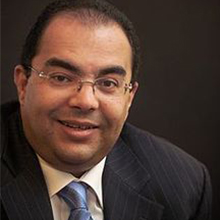Preventing developing economy debt disasters
Skyrocketing food and energy prices, together with widening sovereign bond spreads, have placed balance sheets in emerging market and developing economies under severe strain. This Project Syndicate column argues that to avoid disaster, the international community must urgently support bold debt restructuring.
Can preparedness for a health disaster change the game?
Disease outbreaks like Ebola and Covid-19 have strong detrimental effects on mortality rates for mothers, infants and young children in low and middle-income countries, both immediately and in the longer term. As this column explains, strengthening preparedness for such emergencies has become more urgent as health disasters continue to erode recent improvements in maternal and child health.
External debt vulnerability in the time of Covid-19
Covid-19 is threatening emerging markets and developing economies in multiple ways. As this column explains, these countries are even more vulnerable now than they were at the onset of the global financial crisis in 2008, raising fears that the impact of the current crisis might be more devastating and economic recovery more distant.
Financing a comprehensive and equitable Covid-19 response
Some say our hopes for achieving the Sustainable Development Goals (SDGs) may already be a fading dream, especially for the world’s poorest. This Brookings column argues that they have never been more important – and are still the best course to navigate through these perilous waters. The authors explore how we should finance and implement the SDGs during and after the pandemic.
Covid-19: forging a new social contract in the Middle East and North Africa
The dual shock of Covid-19 and falling oil prices has brought to light the underlying flaws of economies in the Middle East and North Africa. This column, originally published at OECD Development Matters, suggests that events that are out of authorities’ control will trigger change in the societies of the region. Governments must decide whether that change will be guided or traumatic.
Solving both the short- and long-term Covid-19 crises
The global health and economic crisis compels us to act in the short term. But as this Brookings column argues, we also need to look at longer-term challenges. The 17 Sustainable Development Goals provide a pathway for us to ‘build back better’ after Covid-19.
Rethinking the role of the state in the Middle East and North Africa
What should be the role of the state in MENA economies? This column argues that countries in the region should try to increase their level of accountability towards their citizenry by inculcating a culture of ‘value for money’, promoting the emergence of independent, yet accountable, regulators and relying less on the state to rejuvenate their economies.
Rethinking the state’s role in Arab economies
The Arab world's state-led development model may be set to reach a breaking point, as hundreds of millions of young people prepare to enter the labour market in the coming decades. This Project Syndicate column argues that with the public sector unlikely to be able to absorb these new workers, there is an urgent need to create a dynamic and competitive private sector.
A sustainable economy for the Arab world
Building a sustainable economy is an urgent imperative for policy-makers, businesses, and citizens throughout the Arab world. This Project Syndicate column says that it won’t be easy, but the region has plenty of experience overcoming even the most difficult challenges.


